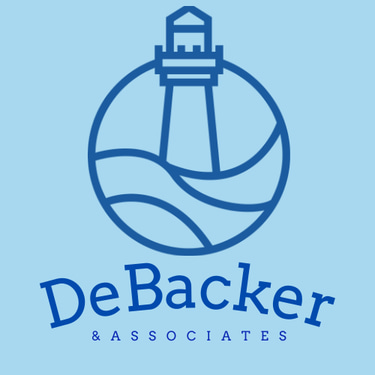In the Game of Life: Industry vs Consulting?
As many are evaluating their career paths, the question I have received the most recently is Industry vs Consulting, what path should I take? Read on to garner some first-hand experience from someone that made the jump, multiple times.
Shannon DeBacker
9/8/20255 min read


Over the last year since venturing out on my own, the question I have received the most often is "Industry or Consulting- should I make the switch?" In fairness, it is similar to asking me which of my pets I prefer, my personal shadow of a goldendoodle or my spicy but forever lap cat. Both have their strong points that provide great opportunity both professionally and personally, but neither are without their flaws. Given the time I had to both think and respond to this question, and the number of individuals who are going through their own career evaluation journey, I will give you my perspective to assess against your own desires as you are evaluating opportunities. Note, these points are generalizations and based on my ~30 year career across both environments on focus areas that I personally value. There is no "one size fits all" answer here, but below is what I have experienced. This is also considering larger firm Consulting, not the entrepreneur path.
Learning Opportunity/Growth
I have to give the upper hand to Consulting from a few perspectives.
Thought leaders - You are working with thought leaders on a daily basis and are consistently challenged to be on the leading edge of technology and overall concepts in the marketplace. It is also part of these leader's mandate to ensure that they share their knowledge both within the firm and outside.
Project rotations - You are generally moving faster to different projects and/or clients, thus have exposure to different functional areas, workplaces and industries. It will give you quick exposure to areas that interest you and help you find what isn't necessarily in alignment with your future and passions. It will also provide exposure to different leadership styles and broader networking.
Learning development - These firms want to get you billable as soon as possible and increase your rates as you move up the ladder so their onboarding, mentoring and training programs are in place to get you there. There was a slip in this training during COVID but for the vast majority, these offerings are back in place.
Although many organizations in industry have excellent rotational, onboarding, and leadership programs, they are often selective in the investment and are driven by different metrics in developing their people.
Stability
Even with the recent market activity, this one still goes to Industry. If you perform to expectations within your role and the organization you are with remains competitive, you can generally maintain a longer tenure with more stability within the company. Also, you can often develop a niche industry skill that will make you attractive to competitive organizations, if you feel the need to expand. Most major organizational shifts are adhoc and driven by significant market downturns or M&A activity.
With Consulting there are two primary considerations here:
Metrics focus - levels of staffing is highly dependent on market demands, and every performance cycle employees are ranked on their overall contributions, usually with utilization as one of the primary factors. This allows consulting organizations to constantly monitor and adjust staffing levels as needed.
Up or Out - many consulting firms, formally or informally, operate with continuous recruitment and movement up the ladder. If you don't ultimately aspire to the top levels in the organization there may not be a long term path for you with the firm.
Work, Life, Health and Wellness Integration
Although Consulting is trying hard with various programs physical and mental health programs, broader hybrid working models and generous PTO allowances, it cannot intrinsically offer the same opportunity for overall work life integration with health and wellness that Industry can offer. And numerous Industry players have had to up their program offerings in the competitive talent market, especially in technology and energy.
A few considerations on the Consulting side:
Travel - as organizations trend more towards back to office, the travel expectations on consulting are steadily increasing as teams need to travel to client site for face-to-face engagement.
Client plus Firm Expectations - with the demands on billable utilization between 40 - 45 hours a week in most cases, adding in travel and the expectations to do additional work in the sales pipeline, eminence and overall talent development, the expectation on work hours is just simply greater. Fitting in family, health and wellness activities, although supported, need to be planned extensively.
Unpredictability - the daily grind and the climb to the top can be tough. You can also be at the whim of client and team needs, therefore, can be open to unplanned travel, deadlines or after hours engagements. What I witnessed, the individuals or families that could handle these challenges the best had in-house or local support and childcare, and/or had one spouse focusing on the family.
Compensation
At most levels, Consulting wins this one hands down. One counter is in Industry when there are equity opportunities that are realized or generally at the executive level with multi-tier compensation, awards and benefit packages.
Ways of Working and Culture
This last focus area that was extremely important to me but understandably varies greatly by organization, department and leader, but there are some common themes.
Competition - Overall, I found the world of consulting more competitive in nature. Although some firms have more of a collaborative, supportive vibe, the vast majority come down to a form of ranking as part of their performance management processes, simply due to the fact that they have to continuously respond to the market in order to remain competitive. This often breeds a culture of competition and comparison among employees.
Workplace Flexibility/Hybrid Models - With the recent surge to return to work in Industry, Consulting overall still maintains a level of flexibility around work location, unless requests of the client deem otherwise. Project teams are generally comprised of members from various locations which lead to effectiveness in a virtual format but for those that prefer the face to face, options for in office locations when desired are available.
PTO and Vacation Time - Consulting generally has very generous PTO allowance which is used as a selling point on hiring. The challenge has always been finding the time to use it given client demands and the push to maintain utilization targets. Always remember, to use vacation allowance as a bargaining area during the hiring process, regardless of Industry or Consulting, as it is a no/low cost to the organization but of great benefit to your overall work/life integration.
Sense of Team/Networking- In Consulting, it is almost entirely up to you to build and maintain your network, and this includes your Champions which can make and break your success in the organization. You also navigate across many teams, which often results in fleeting work relationships or limited connection. The good part to that, it is absolutely your choice in who and how you want to foster your work relationships, but it does take effort. In Industry, you spend a longer period with your teams and leaders, allowing for more natural relationship building and time for your leaders to guide you and witness the talents you bring to the table. This also means when you are in a team or job that isn't in alignment with your skills or passions, it is more difficult to transition.
Administration - Given the additional demands for workforce and project planning as well as billing, there is added time and effort within Consulting, often with penalties for non-compliance. Also, if you work for an accounting firm there are additional financial and representation requirements and monitoring on regular intervals.
Conclusion
These are the highlights that come to mind when evaluating Consulting vs Industry as part of your career journey. There is no one single "winner" in this debate but a list of pros and cons for which you can evaluate for your own personal fit. Also note, that as your personal needs shift throughout your life, our priority across these categories will shift as well. Choose your best fit for where you are at and what you value most. But most of all, follow your gut and take in all of your learnings along the way.

